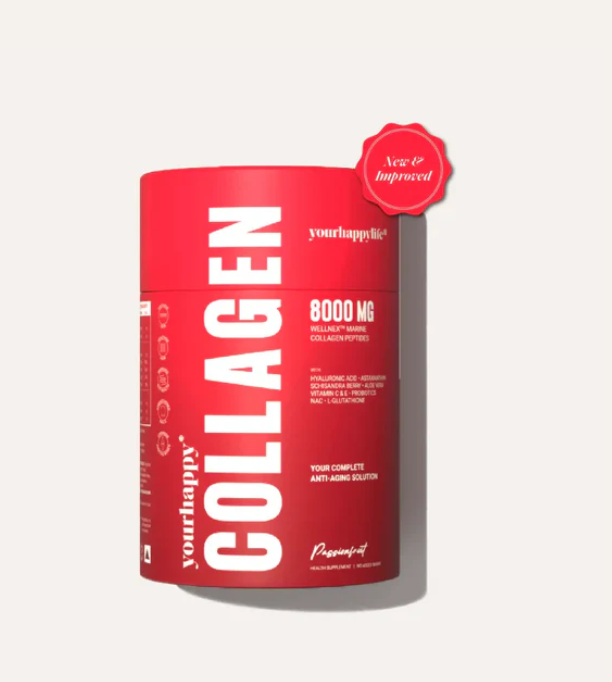News
Why Should You Take Magnesium supplements for Muscle Recovery?

Magnesium is a vital mineral for muscle recovery, essential for anyone who is physically active or participates in regular exercise. Magnesium aids in chemical processes that help muscles relax after contraction, reduces inflammation, and replenishes cellular energy. These micro-effects help your body optimize recovery after workouts or strenuous physical activity.
If you are someone who regularly visits the gym or engages in strenuous activity, you can expect less muscle soreness, quicker recovery times, and improved overall performance.
In this article, we break down:
- What happens to the body's magnesium levels when you put the body through physical activity
- How magnesium supplementation supports recovery
- What to look for in magnesium supplements
- Understanding how much magnesium you need
- Practical tips for maximizing results.
What Happens to the Body's Magnesium Levels When You Maintain an Active Lifestyle
Physical activity, especially at higher intensities or longer durations, increases magnesium losses through both sweat and urine. The metabolism of energy, muscle contractions, and the body’s stress response use up more magnesium during exercise. As the body strives to produce energy (ATP), manage nerve impulses, and power muscle contractions, it rapidly depletes available magnesium.
Athletes and regularly active people often have lower magnesium levels, and research indicates that magnesium requirements may rise by 10-20% for people with frequent, intense activity. Failure to replenish these losses can lead to cramps, fatigue, reduced performance, and longer recovery.
How Do Magnesium Supplements Improve the Body's Muscle Recovery Process
Magnesium directly contributes to muscle recovery by:
-
Assisting with muscle relaxation—counteracting calcium’s role in contraction—so that muscles are less tense and recover efficiently.
-
Reducing inflammation - Magnesium modulates inflammatory markers and promotes the resolution phase of inflammation, decreasing soreness and speeds tissue repair.
-
Supports energy production - Magnesium enables ATP synthesis within muscle cells. Each cell can now provide critical energy for repair, waste removal, and protein synthesis necessary after exercise.
-
Balances distressed nerve signals - Magnesium binds to muscle receptors and “calming” overactive nerves, easing cramps and muscle pain.
Magnesium thus plays a critical role in each step of muscle repair—from initial inflammation and cell regeneration to final relaxation and readiness for the next challenge.
What Should You Check for when Choosing Magnesium Supplements (specifically for muscle recovery)
Before purchasing any magnesium supplements, here are a few things you need to check:
-
Choose highly absorbable forms of magnesium (glycinate, citrate, or malate are generally more bioavailable than oxide).
-
Match the form to your goal: malate/citrate for energy and muscle recovery, glycinate for relaxation and tension.
-
Evaluate for any additional ingredients (avoid excessive fillers or artificial additives).
-
Consider elemental magnesium content (check the label for actual magnesium, not just compound weight).
-
Decide on delivery format: capsules, powders, topical sprays, or bath salts—all may help, but capsules and powders are most effective for systemic needs.
-
For sensitive stomachs, opt for chelated forms.
-
Look for third-party testing or certification for quality assurance.
How to Know If Magnesium Supplements Can Be the Right Solution for You
Consider magnesium supplementation if you notice:
-
Persistent muscle cramps, spasms, or unexplained soreness.
-
Increased fatigue or “heavy” muscles after workouts.
-
Difficulty recovering between sessions
-
Poor exercise performance.
-
Headaches, irritability, trouble sleeping, or abnormal heart rhythms after vigorous activity.
-
Profuse sweating during workouts or very active work/lifestyle, which increases mineral losses.
If these symptoms align and dietary magnesium is insufficient, a supplement may be appropriate.
How much Dosage should I take daily?
Active adults typically lose significant magnesium through sweat (especially in hot/humid conditions) and urine, so daily requirements can increase by 10-20% over the standard RDA. General adult recommendations are about 310–420 mg/day, but athletes and highly active individuals may need up to 450–500 mg/day, depending on sweat loss, body size, and dietary intake.
-
Prefer time-release or extended-absorption capsules for steady bioavailability throughout the day.
-
Always start with the lowest effective dose and titrate up, as excess can cause gastrointestinal discomfort.
-
Your final dose should consider dietary intake, physical demands, and medical advice if any health conditions are present.
Summarizing the Benefits of Magnesium for Muscle Recovery
Magnesium is a cornerstone nutrient for muscle health and recovery—especially for the physically active—by counteracting exercise-induced losses, supporting muscle relaxation and repair, and reducing soreness. Choosing the right supplement is important: prioritize highly absorbable forms and match to your specific recovery needs.
Assess personal indicators like muscle cramps or prolonged soreness to know if you’ll benefit, and ensure your daily dose is adequate for your activity level. For best results, pair supplementation with habits such as:
-
Hydrating well to replace both water and lost minerals.
-
Stretching before and after exercise.
-
Getting sufficient sleep.
-
Eating magnesium-rich foods (nuts, seeds, leafy greens).
-
Avoiding excessive alcohol or processed foods.
With a proactive approach, magnesium can be a key ingredient in maximizing both muscle health and physical performance.









































